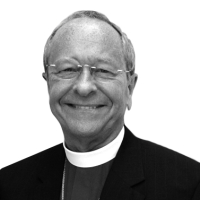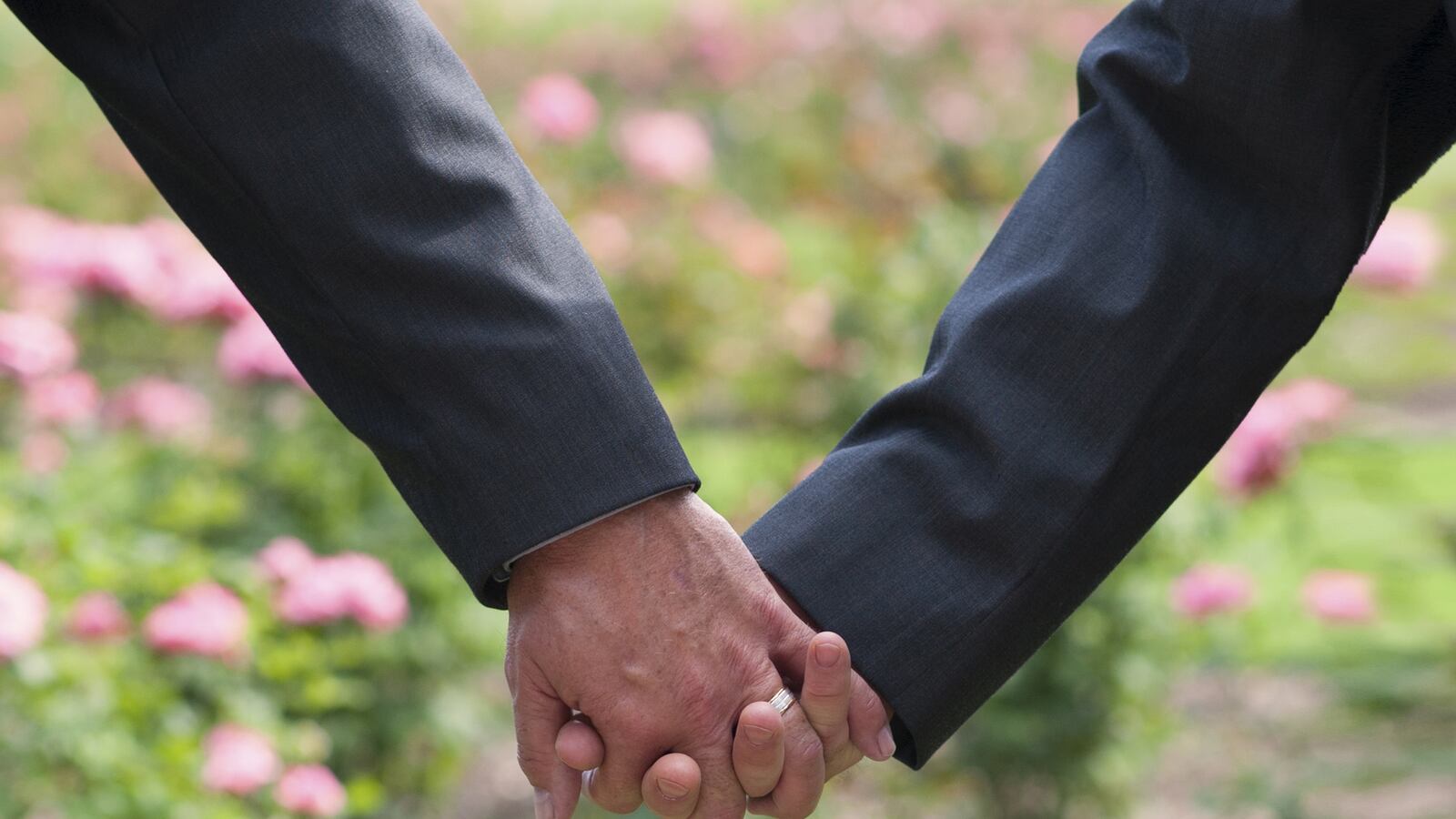It’s hard to remember how difficult life in the Episcopal Church was for me a mere 12 years ago. In June of 2003, I had become the first openly gay priest to be elected a Bishop in historic Christianity. Not the first gay bishop, mind you, but the first one to openly say so. Today, it is difficult to believe how panicked everyone was.
The death threats against my partner and me commenced immediately. Many within The Episcopal Church thought that our beloved Church had come loose from its biblical and theological moorings. (It hadn’t.) This controversy was going to kill us. (It didn’t.) The Archbishop of Kenya said that when I was consecrated, the Devil entered the Church. (Hardly!) This would cause division and strife in the Episcopal Church. (True. And sadly, some 100,000 members—out of roughly 2 million—left over this and other changes in the Church.) The Church, some said, had gone too far in its efforts to be inclusive. (In fact, we hadn’t gone far enough.)
Fast-forward only 12 years to today, when the just-concluded General Convention of the Episcopal Church opened the sacrament of marriage to gay and lesbian couples, just days after the Supreme Court made marriage equality the law of the land. And the Church’s vote by bishops, clergy, and laity wasn’t even close. By a stunning majority, and with little rancor, the Church elected to open all the sacraments to all the baptized. We’d gone from panic over a gay bishop to affirming gay and lesbian relationships in marriage in only 12 years.
A similar rate of progress was happening in the society as well. Sodomy between consenting adults was illegal in many states until struck down as unconstitutional in 2003 (Laurence v. Texas). And a mere 12 years later, the Supreme Court would rule that bans on marriage for its gay/lesbian citizens were unconstitutional. Justice Kennedy, writing for the majority, offered an elegant, and sometimes poetic, vision of marriage to which every citizen would have access.
How did we make such progress in 12 years—in the Church and in American society? Surely the major reason is that so many of us have come out, openly telling the truth of our lives. Whereas only a decade or two ago, most Americans would have told you they didn’t know anyone gay, now there is hardly an American left that doesn’t know some family member, co-worker or former classmate to be gay or lesbian, bisexual or transgender. And as Harvey Milk, the slain gay rights advocate, predicted in the ’70s, coming out makes all the difference. When they know us, he argued, they will no longer fear and hate us. Indeed, they will want us treated fairly.
Many gay, lesbian, bisexual, and transgender people are also people of faith, and we have been working in our faiths and denominations to change the traditional judgments against us. I am reminded that slave owners in the Old South gave Bibles to their slaves in order to keep them quiet, compliant, and resigned to their lot in life. The problem was, those slaves actually read the Bible, with its talk of God’s loving all of God’s children, and St. Paul’s assertion that in Christ, there is neither slave nor free. They learned from the Bible that in God’s eyes, they had a full and equal claim on God’s love, and deserved not only freedom but dignity.
We gay, lesbian, bisexual, and transgender Christians have been reading our Bibles too, and finding therein the seeds of our own liberation at the hands of a loving God. We learned to read the scriptures used to condemn us in the context of the cultures within which they were written—and found them not to be saying what tradition told us they meant. More and more of us came out so that people in our churches and synagogues began to know that we were sitting in the pews next to them. We raised our children in the traditions of our faith and proved that we could be good parents. We contributed to the life and mission of our congregations. And finally, over time, it became unconscionable to treat us as anything less than full members of our faiths.
Some church people say to me that in offering the sacrament of marriage to gay couples, the Church is “giving in” to the culture, and not in a good way. But I would argue that God is going to do God’s justice work with or without the Church. For years, the Church resisted changing its mind about gay people and our relationships, so God looked for justice workers outside the Church. I believe that the changing attitudes of American culture toward LGBT people is the work of a loving God. By welcoming LGBT people into our faiths, we are only joining God’s efforts in the world.
Despite all of this progress, there is still much to do. The number of faiths and denominations that unreservedly welcome LGBT people as full and equal members is small compared to those who do not. But the naysayers’ days are numbered, and the arc of history continues to bend toward justice. The Episcopal Church’s full embrace of us will take a while longer to become a full reality, but we have declared ourselves, once and for all, to be an open and welcoming Church.
There’s no going back. And for that, I am truly grateful.






